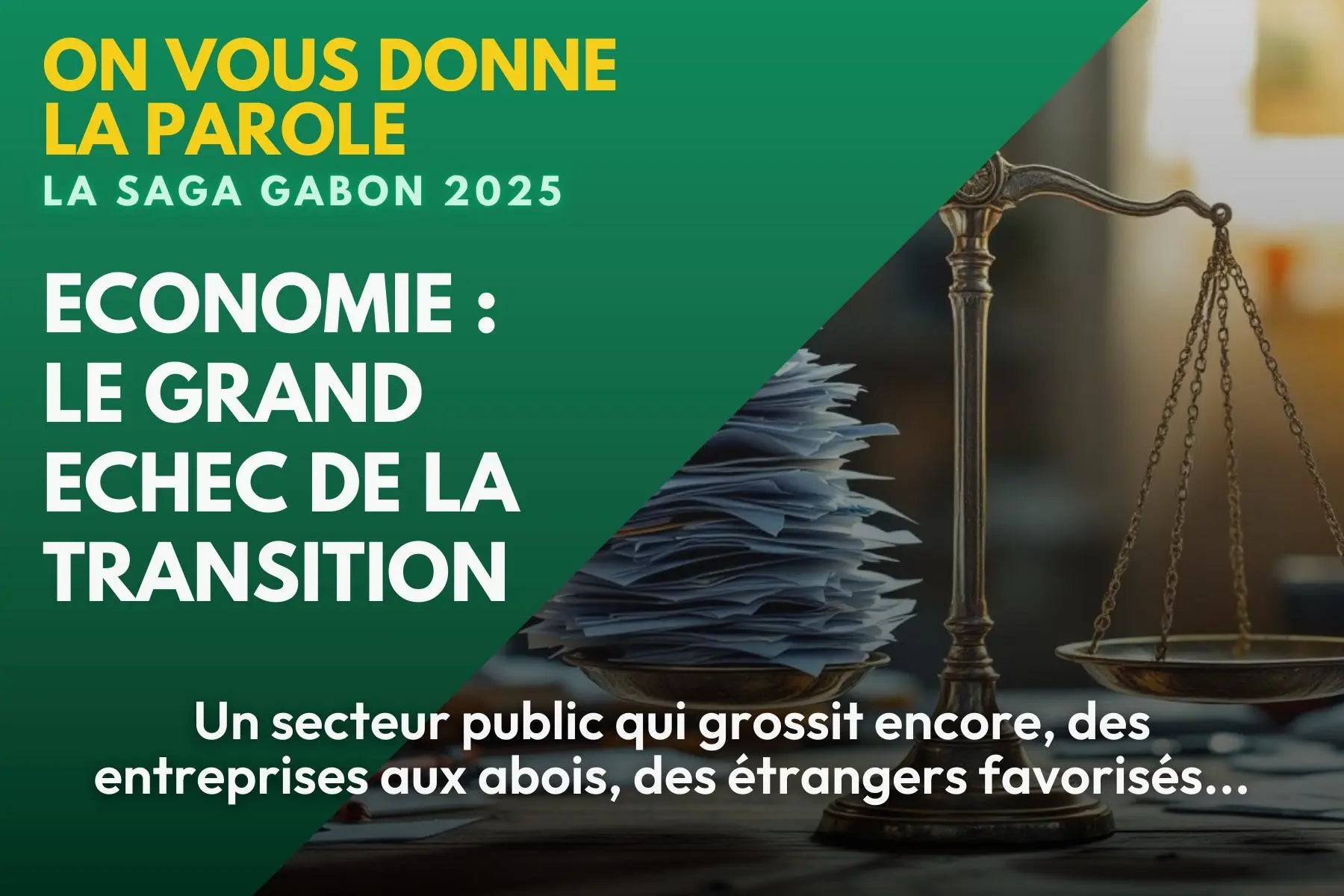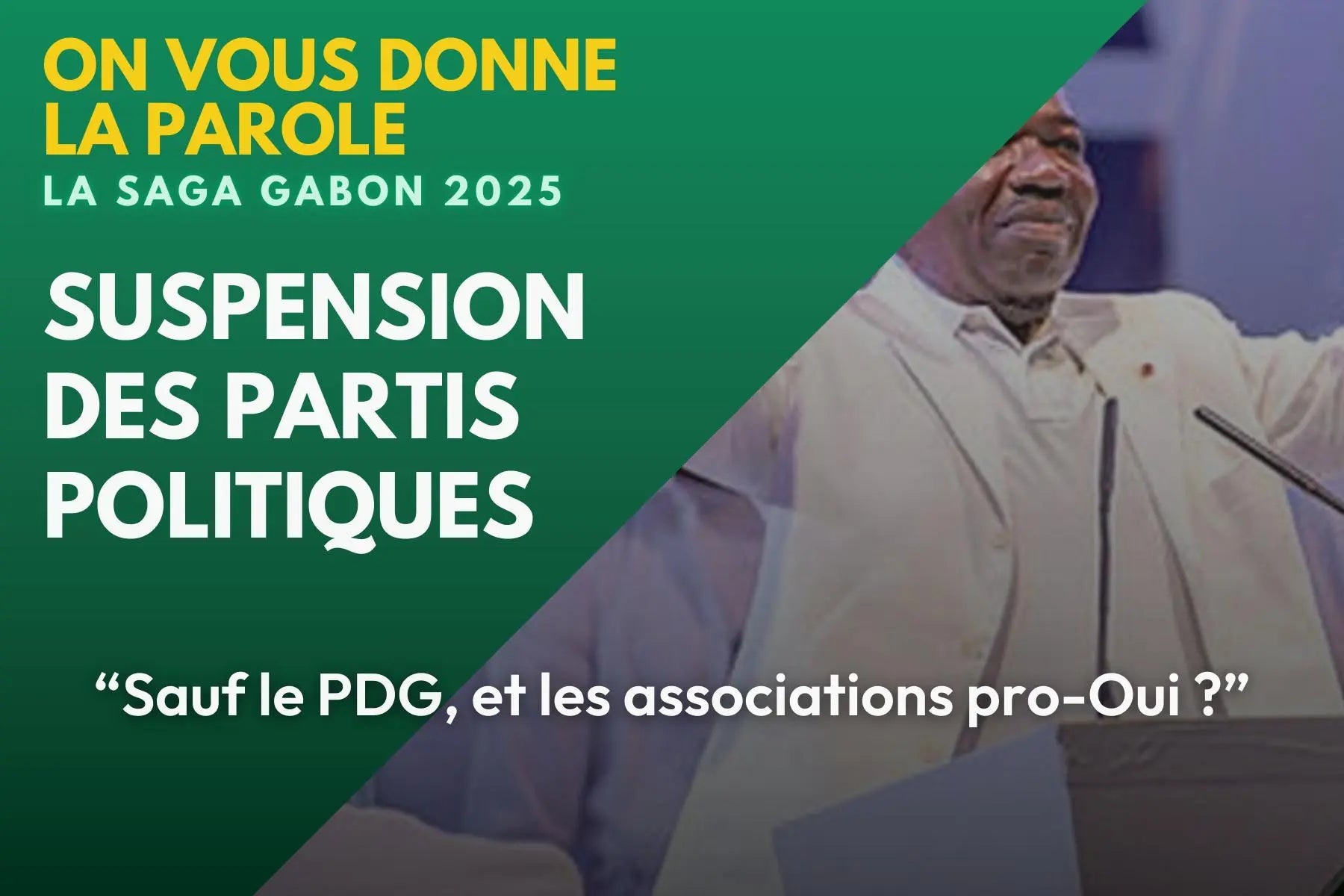Article: Oligui Nguema's economic policy: between promises and contradictions

Oligui Nguema's economic policy: between promises and contradictions
At the Gabon2025 editorial office, we receive testimonies and observe passionate exchanges on social networks that highlight the inconsistencies of the transitional government's economic policy. Through massive hiring announcements, promises of a more dynamic private sector and the awarding of public contracts, the transitional president multiplies contradictory commitments that raise questions. What are the real objectives behind these measures? Let's examine several major axes of these paradoxes.
The Burkinabe in Gabon are particularly present in the construction industry...but also in less "rewarding" work (guards...) https://t.co/gsd3yYkO0b
— Tatami (@PondiThing) October 18, 2024
We are seen as Workers and/or Villagers
But overall we are part of the "Ouestaf" which is not always a positive term.
Massive hiring in the public sector: an obesity cure in the midst of a crisis
Among President Oligui's flagship announcements, that of 150,000 public sector hires is surprising. This promise of jobs, although ambitious, contradicts well-known realities in Gabon: the 10,000 fictitious jobs already recorded in the workforce , as well as a public employment rate that represents nearly 40% of total employment in the country. This policy risks not only worsening the country's dependence on an "obese" public sector, but also further increasing the public deficit, a trend in direct opposition to the stated ambitions of financial recovery of the State.
On paper, Oligui is nevertheless arguing for support for the private sector, the keystone for any modern economy wishing to unleash its growth potential. But with a civil service whose cost weighs heavily on state finances, and which only responds to a logic of plethora of jobs, how can we hope for a revival of the national treasury? The salary costs of the Gabonese civil service are among the highest in the sub-region, leaving little room for structural investments essential for a healthy economic recovery promised support to the private sector… still non-existent
Another axis of contradiction: Oligui Nguema had promised to put the private sector at the center of his economic strategy, claiming to want to reduce the public sector's stranglehold on the economy. However, in reality, this vision of a Gabonese economy revitalized by private companies seems to remain a dead letter. Many companies, particularly in key sectors such as construction and services, continue to be dominated by foreign players (Burkinabe, Cameroonians), while Gabonese entrepreneurs struggle to obtain contracts or financing to develop their activities.
While the Head of State claimed to want to reduce this dependency, he continues to focus his action on public administration, to the detriment of a high-performing private sector. Result: young Gabonese are turning massively towards the civil service, perceived as the royal road, because access to opportunities in the private sector seems blocked to them. This preference for the civil service is becoming a hindrance, accentuating a "brain drain" towards other African nations, or even abroad, in the hope of finding professional and financial opportunities that they do not find in their own country.
Public procurement: from promises of local preference… to foreign realities
It is because of all this that we cannot forgive the CEO without reparations. They have only plundered, seized all public markets, blocked or slowed down those who wanted to move fully.
— LE SATELLITE🛰🇬🇦 (@JacquesMezui1) April 24, 2024
In Gabon, if you don't have your own private customer network, you're DEAD.
Finally, among Oligui Nguema's commitments is the desire to favor local companies in the awarding of public contracts. The objective? To create a local economy, where Gabonese companies would play a key role in national development. But here again, the testimonies collected and online discussions point to another reality: despite the announcements, the majority of lucrative state contracts continue to go to foreign companies, particularly those of Burkinabe, Lebanese or Moroccan nationality .
This preference for foreign companies only increases the frustration of local entrepreneurs, who denounce favoritism and a lack of transparency in the awarding of contracts. Despite the promise of transparency and reforms to better regulate these awards, the Public Procurement Regulatory Agency (ARMP) is struggling to establish a truly fair framework. This goes so far as to raise questions about the real motivations of this economic policy, perceived by some as a "distribution of rent" rather than a solid economic overhaul.
The alcohol that SOBRAGA produces in Gabon could better benefit the Gabonese economy if SOBRAGA invested locally. Even the corn is imported. Regab corn. Worse, SOBRAGA is dragging its feet to avoid planting in Gabon. Expected specifications have become...imaginary.
— Aristide Nguema (@Zoltsi1) November 5, 2024
Between promises and actions, the Gabonese economy at an impasse
First the teachers. Now the oilmen…
— The Only 🇬🇦 Non Hypocrite. (@ObiangEtame) October 27, 2024
What works in this country?
Which sector of activity could raise its hand and say “yes, I work well”. Which one in this Gabon?
In over a year, nothing! Just empty promises with shaky French. https://t.co/6QUj6x65mP
Through these contradictions, Oligui Nguema seems caught in a dilemma: asserting himself as a reformer while maintaining practices from an old system. By hiring massively in the civil service, he adds an unsustainable economic burden. By promising to boost a private sector to which he does not give the means for its development, he breaks the trust of Gabonese entrepreneurs. As for the awarding of contracts, the commitments made are struggling to materialize, reinforcing Gabon's dependence on foreign interests.
By banning the export of logs, the timber industry has become an important pillar of the economy, contributing around 3.2% of GDP and 6% of exports in 2023 and this sector has created around 15,000 jobs.
— Mira N, PhD🌍🚸 (@mira_nts) October 29, 2024
Gabon is the pioneer in the region to ban. pic.twitter.com/gem4hl68YV
While Gabonese people were hoping for a new era of development and transparency, this economic transition leaves more questions than answers. Do the choices of the transitional president really offer an alternative to the economic model inherited from the past, or are they just 'a repetition of the same mistakes?
[Economy] Gabon: more than 700 billion in loans contracted in 2023 for the financing of projects https://t.co/G9Ht5PWUEr
— Gabon Media Time (@gabonmediatime) November 10, 2024
📱066441717 📞 011775663
𝐑𝐞𝐣𝐨𝐢𝐠𝐧𝐞𝐳 𝐧𝐨𝐭𝐫𝐞 𝐜𝐡𝐚𝐢𝐧𝐞 𝐖𝐡𝐚𝐭𝐬𝐀𝐩 ...
🔗 https://t.co/eM87AA1ML2 #GMT #Gabon

